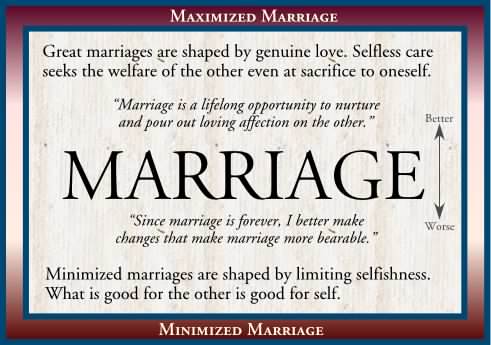
Song of Solomon 1:15-17
Mutual Adoration
Paul J. Bucknell
Bridegroom: “How beautiful you are, my darling, how beautiful you are! Your eyes are like doves.” (15)
Bride: “How handsome you are, my beloved, and so pleasant! Indeed, our couch is luxuriant! The beams of our houses are cedars, our rafters, cypresses. (16-17)” (Song of Solomon 1:15-17, NASB).A couple will not only quietly reflect on the beauty and wonder of their partner, but they will express this to the other. Their secret thoughts don’t become exposed, however, until they see it is safe and appropriate.
We can easily see the transition to using “you.” One can usually guess which person is speaking by the endearing terms used besides the descriptions. A man will describe the girl’s eyes as doves, not vice-a-versa. Many expressions from men and women of each other are transcultural. This can be confirmed by the Hebrew language in which this song was written. Personal pronoun and noun have separate male and female forms for the most part.
At times, only one partner shares these thoughts. In this case, deep reflections are very improper and brash. Men tend to run forward with the relationship and are less able to slow down and enjoy the relationship building time. They just want to say they have a girlfriend. Women on the other hand generally love this build up that one sees so carefully reflected here in their dialogue.
This is hardly their first dialogue. The first was at the dining table. Perhaps this one is more private. Intimate conversations generate more reflections (2:1-2) because they gain an appreciation of the other one's perspective. Healthy relationships need both the private thoughts and expressed delight from both sides. They will be like a pair of mountains echoing forth their generous appreciation of others. Here the bridegroom speaks first and then the bride.
Bridegroom: “How beautiful you are, my darling, how beautiful you are! Your eyes are like doves.” (15)
The bridegroom begins with sharing his excitement over her charm and beauty. “How beautiful you are!” Twice it is repeated, each separated by a very clos
e phrase or title.
“My darling” has been used before and will be used a total of nine times in this book. Once affectionate times are accepted, they seem to be regularly used. They become private names to create a closer intimacy. Special names are fine if appropriate and edifying. Names always should be to build up the other person even if it seems cute or is a teaser.
He also says that her eyes are like doves. The dove has throughout time been a symbol of love. He is honestly saying how her eyes wonderfully attract him.
Bride: “How handsome you are, my beloved, and so pleasant! Indeed, our couch is luxuriant! The beams of our houses are cedars, our rafters, cypresses” (1:16-17).The bride responds with her affectionate term too. When one person uses an affectionate term to call the other, the other also tends to. This is the third time she uses ‘my beloved’ or ‘my lover’ as NIV translates it. Altogether the phrase will be used 29 times in the Song of Solomon. Interesting the Hebrew word is ‘dode’. My babies’ first words have always been a version of this word similar to Daddy. At least, that is what I like to hear my little one say. The affection and attention of a little one is focused on the one immediately around him or her. And for the maiden here, she has surrounded herself with him both in reality as much as possible and in her mind when she cannot be near him.
This couple has ‘fallen into love.’ They are always with each other. Once they step away, they are on the phone. There are problems with such relationships, and they must be carefully guarded especially in our modern scene of wealth and transportation. They can easily escape into a private setting that is not suitable until marriage. Before couples were limited to their parents’ houses when an adult was home or public places. This is appropriate.
A marriage is like epoxy glue
. The more the two are blended together, the more they properly function as one new entity. If kept separate, nothing new has been created.
She acclaims his handsomeness. His physical features catch her attention. His person is represented by his face and physique. She says it is so pleasantly. The person’s presence charms the other. When one person states one thing, the other affirms it. It is like epoxy glue where two components are non-sticky by themselves but once one mixes them, they become impartible. Intimate words lead to marriage. They should be reserved for courting situations. Dates which have no marriage in mind should be avoided as much as possible. We are not to waste time, emotion and money on those whom a person will never marry or not be allowed to marry.
She continues using two images to describe their relationship. We must remember that a woman will read more into a relationship than usually exists. She will be trying to tie the relationship together because of its importance. Men, generally speaking, are less concerned about this aspect. He was interested in her person. She is speaking of them.
She sees themselves on a couch that is luxuriant. We have a hard time understanding living couches or beds, but we must remember that they would often make a plush seat out of lots of soft greeneries. The key element is that it was big enough for both of them to be together. They could sit down beside each other. She saw them together.
This togetherness not only implied intimacy but also permanency. We see this through strong building materials. “The beams of our houses are cedars, our rafters, cypresses.” Their relationship would be protected by a strong house that would protect them through life’s storms and trials. This seems to be a picture of marriage–a place that makes the relationship permanent. Unfortunately, our society has allowed divorce to ruin this strong building of marriage.
Marriages that tolerate divorce are like straw and grass. The marriage might last for a short season, but it cannot stand the pressures and tensions of relationships.We have seen this in America since the 60s when divorce laws were loosened. People think they were being liberated where in fact they were denying marriage its power and glory. How so?
Marriage is built on love. We are not talking about affectionate feelings. These feelings go away far too quick. They cannot and were not designed to sustain a relationship. The marriage secured the life commitment of each other so that a resemblance of true love would be secured. If one thinks of them as the same, then one will treat the other more like him or herself. This is love even though a truer love works deeper with through one's motivations genuinely wanting the blessing of the other regardless of self. If however, one can think of one to separate from his or her mate, then selfishness will grow.Couples will contemplate divorce because it becomes an option to serve one’s own needs. Anti-divorce laws enforce the situation that shapes a couple into caring for each other. God clearly spoke against divorce as Jesus did. Divorce and remarriage does not hold back selfishness but brings greater destruction because of broken bonds and confusion. In a sense it legitimatizes selfishness.
We need to remember this is the lower edge of marriage’s blessing. Our discussion in this series aims towards the high standard that God has designed marriage and love to grow in, sealing the love in great intimacy and beauty.
In our diagram, the differee between maximized and minimized marriages is shown. Maximized marriages only can occur when marriage is perceived as something as permanent and unchanging (until death). The law of permanency enables them to look at themselves as a couple rather than just individuals. They will think of the welfare of the unit rather than just their own selfish needs. Permissibility of divorce breeds the minimized marriage where they function more as individuals than a couple. Marriage by design, however, teaches that it is for life and therefore one should think of him or herself as part of a couple. Maximized marriages think not of “my plans” or “my money” but “our plans” and “our money.”
Maximized marriages function in a totally different realm. They are not motivated by seeking the good of oneself but by seeking the pleasure of the other. They are well within the rules of marriage as set by scripture and law. They are finding greater and more glorious things in selfless devotion to the other. This is what we discover in instances of couples before marriage. A special man-woman love causes them to live beyond themselves. Its glow leads people into bonding themselves to each other.
Summary
The woman seeks to be desired and therefore accepted. Once this attention is given to her, she releases her hesitations and frames these thoughts into a permanent relationship.
How does this impact our relationship with God?
1) First, because we see marriage as something designed for mankind, so we should understand that God understands all the intricacies of relationships. All the feelings and special understandings of each gender are taken into full consideration. God has used marriage (Ephesians 5:28-32) to help us understand the relationship between Him and the church. We should anticipate a growing love relationship with God through Christ.
2) We should not be shy in having special and yet appropriate names for our loving God. We see many special names of God given at special crisis times where the saints of old got a better glimpse of God’s glory. We might call Him ‘My Lover’ or ‘My Healer’ or ‘My Protector.’
3) God provides that constant love toward us so that we are fully accepted before God in Christ. This should incline our hearts to desire and work toward a longterm relationship. This is eternal life. We work hard at pleasing Him not to gain His affection but to bring our relationship to a higher level.











